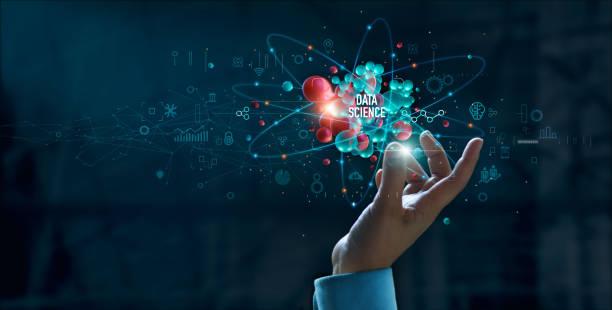The tech sector is quite broad, with many niches and career opportunities. If you want to determine which field is right for you, you must do your learning and research the areas that best suit your interests.
Data science and computer science are among the most prominent and sought-after fields in technology. These areas deal with software applications and how to apply them to solve real-world problems.
If you’re wondering about choosing between these two fields, let’s answer the question, “Computer and data science: Which is for you?”
Which Career Path is Better?
If you like building new things, you should choose computer science. But if you like to analyze, research, and draw conclusions based on data generated in real-time, data science is for you.

Choosing between these two fields is relatively easy if you understand both. Data science is ideal for those who enjoy working with statistics and numbers. Therefore, you will have to collect and analyze large amounts of data when choosing this field.
Although it uses some aspects of computer science, it still falls heavily on statistics and mathematics.
Computer science, on the other hand, is concerned with building things. The roles of this field are also ideal for studying the interaction between people and these technologies.
You should choose the field that matches your interests and future career aspirations.
What is Computer Science?
Computer science is the oldest of the two, dating back more than hundreds of years. Ada Lovelace, considered the first “computer programmer,” lived in the early 1800s, a hundred years earlier than the first modern computer.
Computer Science will study the theory and practice of how computers work. If you decide to pursue this field, you will have to understand programming languages like JavaScript, Java, and Python and the fundamental and essential elements that make them work.
While in school, you will be taught topics such as networking, security, operating systems, architecture, and computer algorithms. In general, this field focuses only on computers.
What is Data Science?

Data science is a relatively newer field that has evolved as companies and businesses seek to use the vast amounts of data they collect.
This field involves both statistics and computer science. Statistical analysis is nothing new. However, the size of the data sets and the computing power required for analysis are different.
For this field, data is mined (or collected) and analyzed to provide any valuable information, patterns, or trends.
If you want to pursue this career, you will have to be proficient in programming languages such as SAS, Python, R, and Java.
In addition, you will also need to use software such as Tableau, Apache Spark, and Hadoop to refine, process, and display your findings.
You will need to focus on mathematical understanding and concepts, such as statistics and calculations. Besides, other subjects such as deep learning, machine learning, databases, and data visualization must also be considered.
Key Differences
Once you know the concepts, it’s time to compare them to determine which one is for you.
Job Opportunities
In general, businesses today are in great demand in both areas. They are always looking for great experts in these areas.
Therefore, whatever your choice, you can expect that there is a bright career ahead waiting for you, as long as you are good at your chosen field.
Responsibilities and Skills
The difference between these two fields is also evident when it comes to the responsibilities and skills required for professionals working in each field.
When choosing between these two fields, it is essential to know what skills and responsibilities to succeed in your chosen field.
Skills
Knowing the skills required will clear all doubts and quickly determine which option suits your preferences best.
These fields are different because they focus on different aspects of the technology sector. So, the skill required for each area is also different.
Following are the skills required for a data science professional:
- Data exploration and wrangling
- Data extraction
- Programming (R, SQL & Python)
- Data visualization
- Statistics
- Deep learning
- Machine learning
- Big data frameworks
Following are the skills required for a computer science professional:
- Data structures
- Knowledge of basic computer systems
- Mathematics
- Software development
- Operating systems
- Technical writing
Responsibilities
Besides the necessary skills, the responsibilities and roles of each field are also very different.
Here are computer science responsibilities:
- Writing code
- Software development
- Collaborating on projects
Here are data science responsibilities:
- Data mining
- Analyzing data
- Sharing insights
Applications
Both computer science and data science entail different day-to-day tasks and responsibilities, and both have different real-world applications.
Data Science
Professionals in this field may be responsible for analyzing different customer behavior patterns. As a result, they can help their company design services and products that meet the needs of every customer.
In addition, these experts may also involve providing algorithms to make recommendations to customers and users of the websites.
For example, experts design an algorithm for streaming services to predict which shows a user will enjoy based on their previous viewing history.
On the other hand, some analysts are responsible for collecting data from location, environment, or population. These professionals often analyze geographic data for companies, urban planners, and governments.
Computer Science
Computer science can come to greater data efficiency. For example, without the help of an efficient data platform, it is not feasible to stream video. As a result, sites like YouTube and Netflix would not exist.
The world’s financial system has also been computerized. Digitization will allow investors and banks to operate more efficiently. Besides, it also allows customers to access financial services online more quickly.
The field is also applied to allow employees to work remotely. Specifically, the cloud system and project management platform will allow employees to work from home without affecting communication or overall efficiency.
Salary
The average salary that data scientists get each year is $124,540, while a computer scientist may earn an average of $140,914 per year. In general, the difference is not significant.
Comparison Table
The following table summarizes the key differences between these two fields:
| Computer Science | Data Science | |
|---|---|---|
| Job Opportunities | Businesses today are in great demand in both areas | |
| Skills | Data exploration & wrangling, Data extraction, Programming (R, SQL & Python), Data visualization, Statistics, Machine learning, and Big data frameworks. | Data structures, Knowledge of basic computer systems, Mathematics, Software development, Operating systems, and Technical writing. |
| Responsibilities | Writing code, Software development, and Collaborating on projects. | Data mining, Analyzing data, Sharing insights. |
| Applications | – Analyze different customer behavior patterns. – Provide algorithms to make recommendations to customers. – Collect data from location. | – Provide greater data efficiency. – Allow employees to work remotely. – Allow investors and banks to operate more efficiently. |
| Salaries | $140,914 | $124,540 |
Conclusion
Both of these areas will thrive over time. So whatever your choice, you will have a bright career future if you put in the effort.
Choosing a specific field is the first step to embarking on a career in technology. You should carefully consider your interests and the specifics of each field before deciding.
